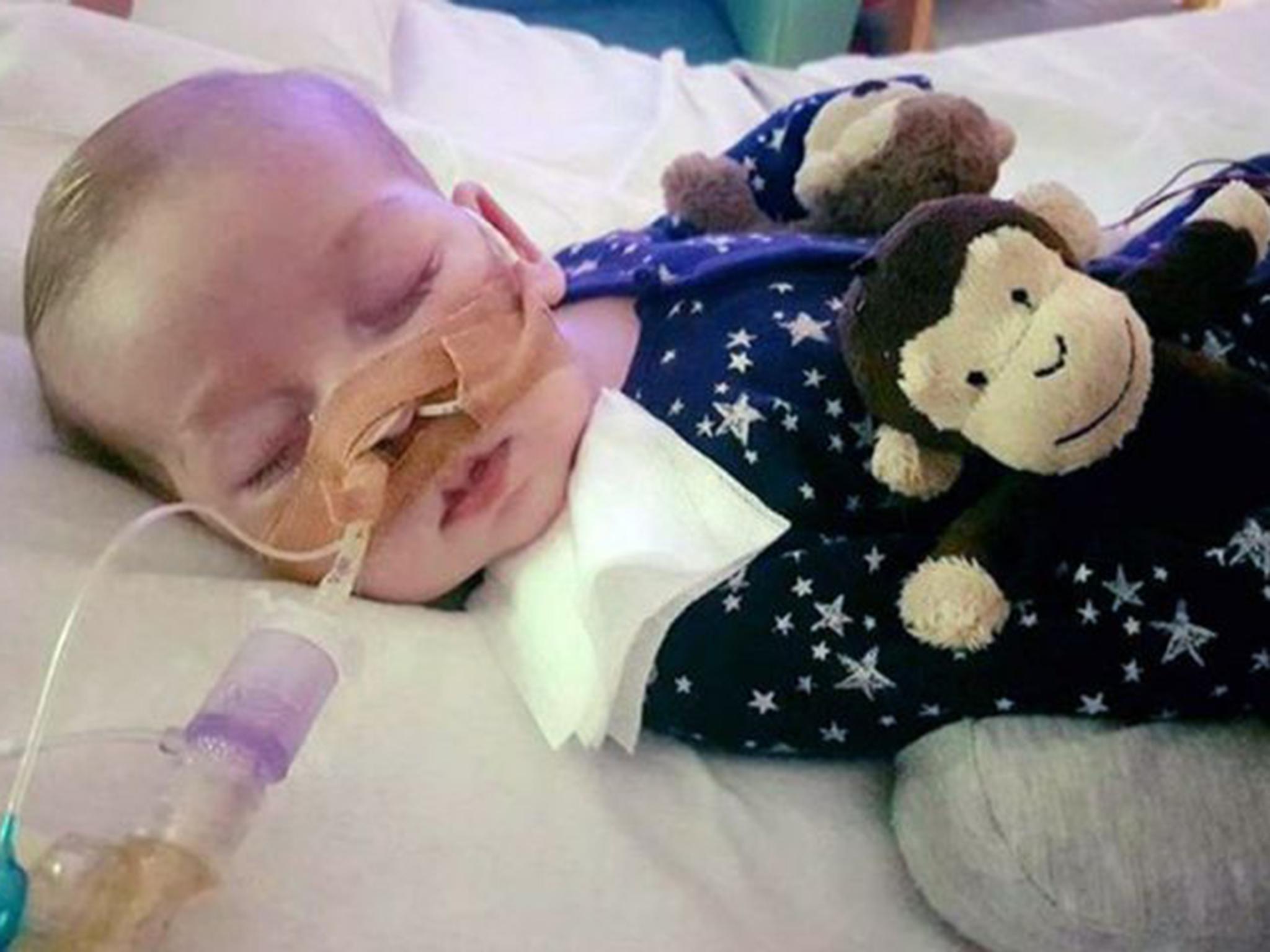Charlie Gard: US doctor to travel to UK to assess terminally ill boy
The doctor claims Charlie has a 10 per cent chance of survival with an experimental new treatment

An American doctor will to travel to London to examine Charlie Gard, the terminally ill baby at the centre of a fierce debate over parental rights in the UK.
Dr Michio Hirano of Columbia University will assess whether Charlie is eligible for an experimental treatment, which could improve his quality of life and reduce some of the brain damage caused by his illness. The doctor claims Charlie has about a 10 per cent chance of improving with the help of this treatment.
British High Court Judge Nicholas Francis said on Friday that he is “open-minded about the evidence” that Mr Hirano could provide. Mr Francis will allow him to meet with Charlie’s medical team to discuss the case.
Charlie suffers from a little-known genetic disease called mitochondrial DNA depletion syndrome, which has left him unable to see, hear, move, swallow or even breathe without life support.
His parents want to take him to the US for treatment, but UK courts have blocked the move, claiming it will do more harm to the baby than good.
The case has made its way to Britain’s High Court, which will weigh whether Charlie’s parents should be able to defy the advice of his doctors and transport him to the US.
In a court appearance on Thursday, Mr Hirano said there is a “small but significant” chance the experimental treatment would improve Charlie’s condition, adding: “The only way to tell if the brain damage is reversible is by trying new therapy.”
The doctor, an expert in mitochondrial diseases and genetic myopathies, said he would recommend four strong doses of nucleoside bypass therapy to combat the illness.
Great Ormond Street Hospital, where Charlie is being treated, has said the experimental treatment would be “futile” and would “prolong Charlie’s suffering”.
“This is not an issue about money or resources, but absolutely about what is right for Charlie,” the hospital said in a statement.
At least two hospitals in the US have said they will treat Charlie if legal hurdles are cleared, and if he receives the emergency approval from the FDA necessary for experimental treatment.
Join our commenting forum
Join thought-provoking conversations, follow other Independent readers and see their replies
Comments